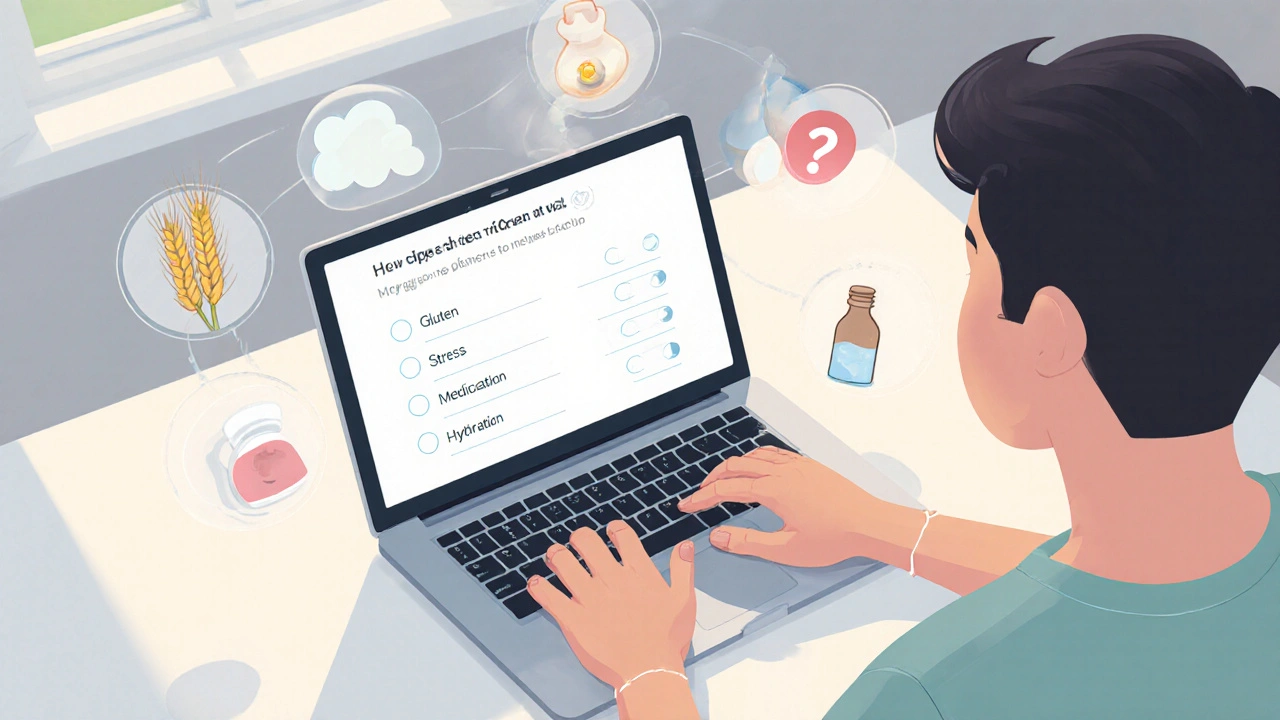Diarrhea: What It Is and How to Manage It
When dealing with diarrhea, the sudden increase in watery stools that can last from a few hours to several days. Also called loose stools, it signals that the gut is trying to flush out something unwanted. Understanding why this happens helps you stop it faster and avoid complications.
Why Does Diarrhea Happen?
Most episodes start with a trigger. Food poisoning, bacterial contamination from undercooked meat or raw produce is a top culprit, but viruses like norovirus, travel‑related parasites, and even antibiotics can upset the intestinal balance. Stress, lactose intolerance, and chronic conditions such as irritable bowel syndrome also play a role. The gut lining releases extra fluid to speed up the removal of the offending agent, which explains the watery output.
These triggers create a chain reaction: the body pushes fluid into the intestines, the stool becomes loose, and you may experience cramping, urgency, and occasional fever. Recognizing the pattern lets you target the right remedy early.
Dehydration, the loss of body water and electrolytes is the biggest risk when diarrhea lasts more than a day. Even mild fluid loss can make you feel light‑headed, cause dark urine, or worsen existing health issues. Replacing water alone isn’t enough; you need salts like sodium and potassium to keep cells functioning.
To combat dehydration, oral rehydration solutions (ORS) or a homemade mix of water, a pinch of salt, and a spoonful of sugar work well. Sip often rather than gulp, and pair fluids with bland foods like bananas, rice, applesauce, and toast – the classic BRAT diet – to give your gut a gentle source of energy without aggravating it.
Once rehydration is under control, restoring the gut’s bacterial balance becomes the next priority. Probiotics, live beneficial microbes such as Lactobacillus and Bifidobacterium can shorten the duration of infectious diarrhea by outcompeting harmful germs and reinforcing the intestinal barrier. Yogurt with active cultures, kefir, or a quality supplement taken for a few days after symptoms subside can make a noticeable difference.
If the urgency is disrupting daily life, an antidiarrheal medication, such as loperamide, which slows intestinal motility may be appropriate. These drugs are best used for short‑term relief in adults without a fever or blood in the stool. They should never replace rehydration, and they’re not advised for children under two years old.
Beyond immediate fixes, some lifestyle tweaks help prevent future episodes. Wash hands thoroughly before meals, avoid raw or undercooked foods when traveling, and stay up to date on vaccinations for rotavirus and cholera where they’re recommended. If you’re on antibiotics, consider a probiotic starter to protect your gut flora.
Understanding the links – diarrhea often results from food poisoning, diarrhea can lead to dehydration, probiotics help restore gut balance after diarrhea, and antidiarrheal medication reduces bowel movement frequency – gives you a clear roadmap for action. Below you’ll find a curated set of articles that dive deeper into each cause, treatment option, and prevention strategy, so you can pick the right approach for your situation.

Managing Diarrhea When You Have Celiac Disease and Gluten Sensitivity
Learn how to control diarrhea caused by celiac disease and gluten sensitivity with practical diet tips, symptom tracking, and gut‑healing strategies.
Read More